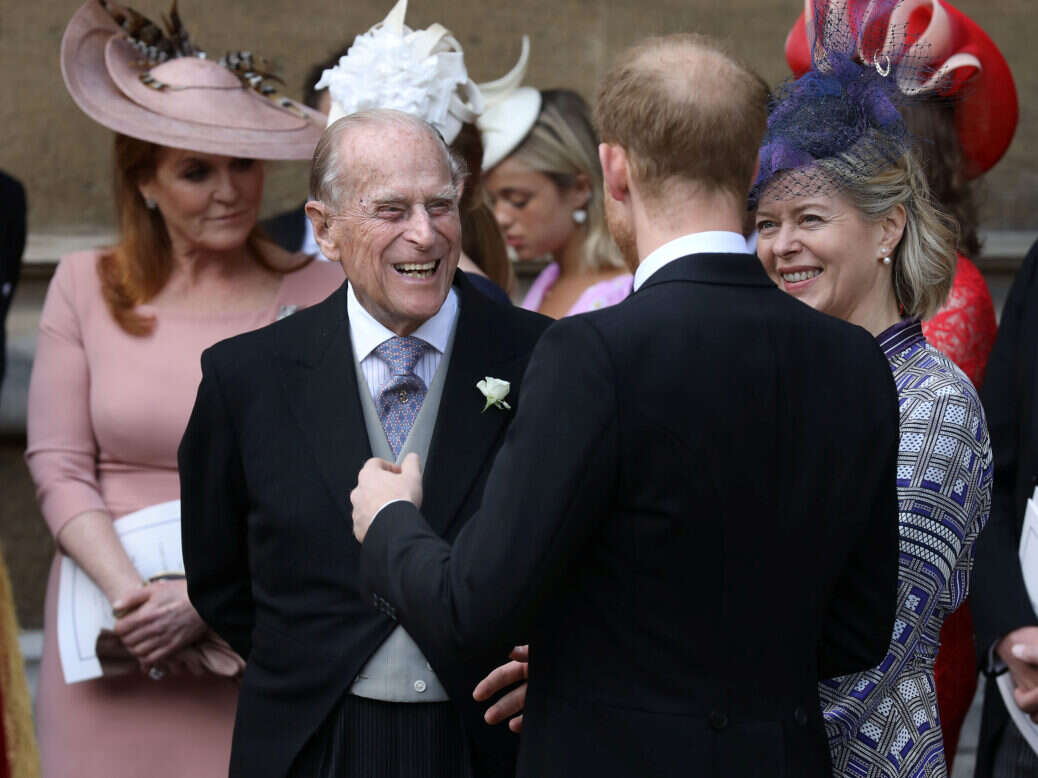
The Guardian has lost its Court of Appeal bid to challenge the secrecy of a hearing held about the Duke of Edinburgh’s will.
In July last year Sir Andrew McFarlane, President of the High Court’s Family Division, first ruled that the unlisted hearing should be held in private and later, in September, delivered a public judgment that Prince Philip’s will should be sealed for 90 years.
The proceedings came months after the Duke’s death at the age of 99 in April 2021.
Guardian News and Media had argued that holding the July hearing in private without even informing the press in advance was “the most serious interference with open justice” and “disproportionate and unjustified”. It did not appeal against the sealing of the will itself.
Ruling against The Guardian on Friday, Sir Geoffrey Vos and Dame Victoria Sharp, sitting with Lady Justice King, said it was not a case where “fairness demanded that the media be notified of the hearing or asked to make submissions before judgment”.
They said they could not see how the media could have been alerted to the fact the hearing was taking place “without risking the media storm that was feared”.
Sir Andrew McFarlane had said holding proceedings in public, leading to a series of announcements, hearings and a judgment, would be likely to
generate significant publicity and conjecture over an extended period and thus be “contrary to the need to preserve the dignity of the Sovereign and protect the privacy surrounding genuinely private matters”.
The Court of Appeal judges agreed: “The hearing was at a hugely sensitive time for the Sovereign and her family, and those interests would not have been protected if there had been protracted hearings reported in the press rather than a single occasion on which full reasons for what had been decided were published.”
Sir Geoffrey Vos and Dame Victoria Sharp added that they agreed there is generally a public interest in open justice but that the circumstances in this case were “exceptional”.
They said in their ruling: “It is true that the law applies equally to the Royal Family, but that does not mean that the law produces the same outcomes in all situations.
“These circumstances are, as we have said, exceptional.
“We are not sure that there is a specific public interest in knowing how the assets of the Royal Family are distributed.
“A perceived lack of transparency might be a matter of legitimate public debate, but the NCPR [Non-Contentious Probate Rules] allow wills and their values to be concealed from the public gaze in some cases.
“The judge properly applied the statutory test in this case.”
Caoilfhionn Gallagher QC had told the court that if it succeeded, The Guardian would want the hearing to be held again with the newspaper present and able to make submissions on whether the will should be sealed and an order stating the value of the will should not be kept on the court file, the process to be followed in the case of an application to unseal the will, and the general process over royal wills.
Lady Justice King raised concerns over whether “some lesser interference with the principle of open justice could have been devised whilst maintaining the dignity of the Sovereign and the privacy of the Queen and the Royal Family as a whole”.
The Guardian had argued the general principles of the Family Court should have applied, wherein journalists can attend but not report specific facts.
Lady Justice King said she believed she “would have tried to find a route which would have enabled the media to be present to hear and scrutinise the substantive proceedings,” such as by permitting accredited journalists to attend an otherwise private hearing with an order that there could be no reporting until judgment was handed down, thus avoiding a string of separate days of publicity.
But she concluded: “At the end of the day in my judgment, the safeguards in the form of the full and open judgment and the presence of the Attorney General as guardian of the public interest together lead me to conclude that I cannot in the end say that the President was wrong in taking the course that he did.”
The Attorney General had been invited to give an opinion on the hearing been held in private, and said the “public interest strongly [favoured] not permitting publication of the will”.
After the death of a senior member of the royal family, it has been convention for more than a century that an application to seal their will is made to the president of the Family Division of the High Court.
This means the wills of senior members of the royal family are not open to public inspection in the way a will would ordinarily be.
Sir Andrew said any future judgments on applications to seal royal wills would remain closed, and therefore will not be made public.
Additional reporting by PA Media
Picture: Steve Parsons/Pool via Reuters
Email pged@pressgazette.co.uk to point out mistakes, provide story tips or send in a letter for publication on our "Letters Page" blog

